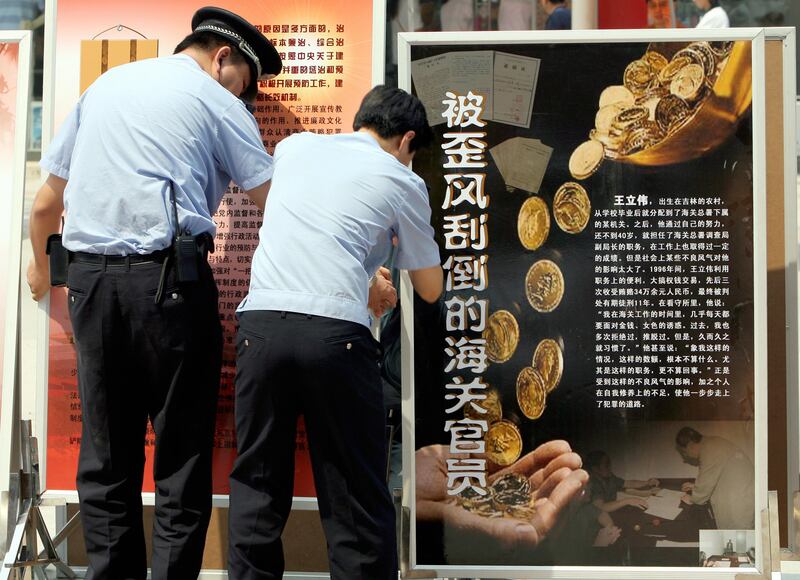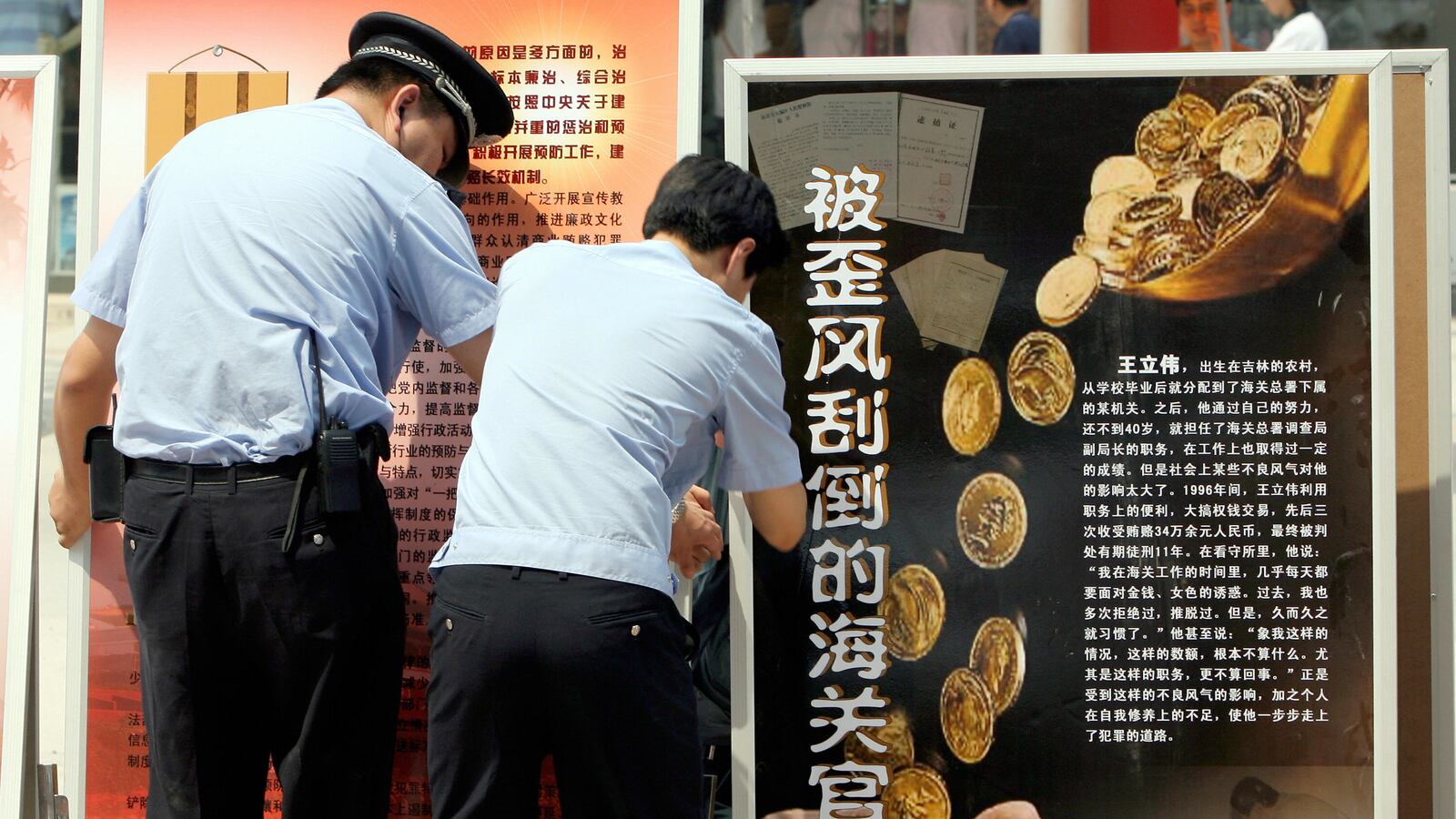
The New York Times optimistically suggests that new Chinese leaders are demonstrating seriousness in the struggle against that country's notorious corruption.
In the weeks since the Communist Party elevated a new slate of top leaders, the state media, often fed by freelance vigilantes, have been serving up a head-spinning collection of scandals.
Highlights include a deputy district official in Shanxi Province who fathered 10 children with four wives; a prefecture chief from Yunnan with an opium habit who managed to accumulate 23 homes, including 6 in Australia; and a Hunan bureaucrat with $19 million in unexplained assets who once gave his young daughter $32,000 in cash for her birthday.
“The anticorruption storm has begun,” People’s Daily, the party mouthpiece, wrote on its Web site this month.
The flurry of revelations suggests that members of China’s new leadership may be more serious than their predecessors about trying to tame the cronyism, bribery and debauchery that afflict state-run companies and local governments, right down to the outwardly dowdy neighborhood committees that oversee sanitation. Efforts began just days after Xi Jinping, the newly appointed Communist Party chief and China’s incoming president, warned that failing to curb corruption could put the party’s grip on power at risk.
An alternative hypothesis was suggested to me years ago by a veteran China-watcher. "The Chinese would like you to think, 'Official so-and-so was exposed for corruption, and then lost power.' It would be more accurate if you understand that 'Office so-and-so lost power - and was therefore exposed for corruption.' " New leaders bring new followers, with new demands. Corrupt old cadres are replaced, but not the corrupt system.






